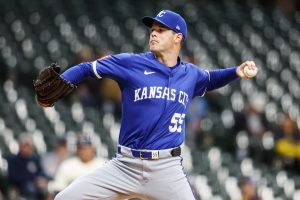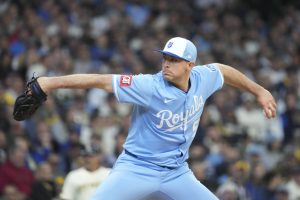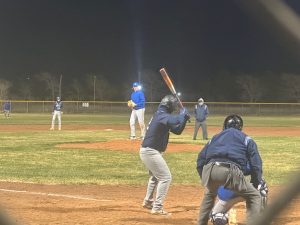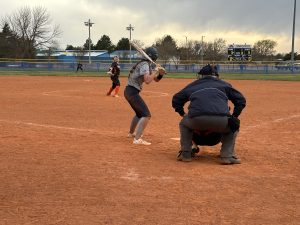PGA Tour’s return to Castle Pines stirs memories of milkshakes, mountains and missing Tiger Woods
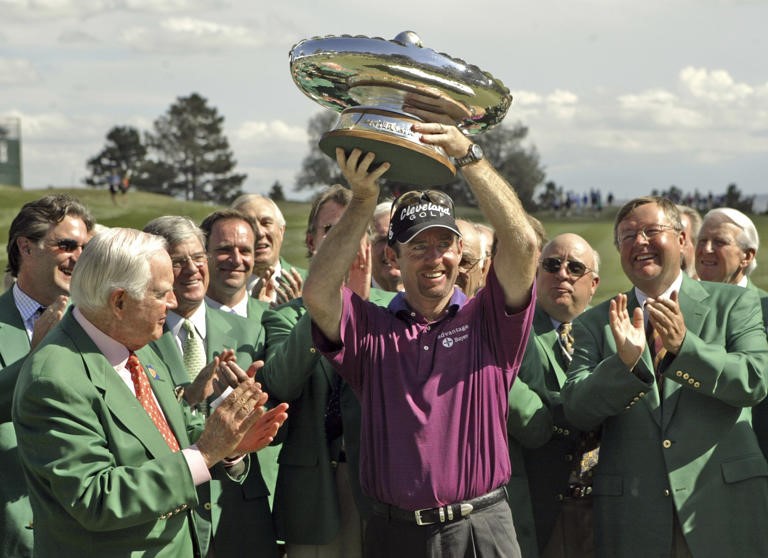
FILE - Jack Vickers, left, and other committee members look on as Australia's Rob Pampling holds the trophy after winning the International at Castle Pines in Castle Rock, Colo., Sunday, Aug. 8, 2004. (AP Photo/Jack Dempsey, File)
By EDDIE PELLS AP National Writer
CASTLE ROCK, Colo. (AP) — Start with those hand-spun milkshakes, that crazy scoring system and the seal of approval from Jack Nicklaus himself. Throw in some great mountain views and a chance to escape the same ol’-same ol’, and Castle Pines had the makings of one of those can’t-miss stops on pro golf’s unrelenting calendar.
But too many players did, in fact, skip the tournament called the International. Most notable was Tiger Woods, who only showed up twice over 21 years and, thus, played a role in sealing its fate.
This week, for the first time since the International’s final round in 2006, the PGA Tour is back at the course — situated 6,300 feet above sea level and 25 miles south of downtown Denver — that oil magnate Jack Vickers built with a big assist from his buddy, Nicklaus.
The BMW Championship, which opens Thursday at Castle Pines, is the second of the tour’s three playoff events. In one way, the week is a typical high-stakes PGA Tour pressure cooker. In another, it’s a trip down memory lane.
“Jack Vickers was an oil man — wildcatting, and he was used to high risk, high reward,” said Buddy Martin, the onetime Denver Post sports columnist who took a break from writing a few years after Vickers approached him under the big oak tree at the Masters in the 1980s and asked him to help put on the International.
“When he put this together, he did everything he could to be unique,” Martin said.
Stableford scoring was among the things that set Castle Pines apart
Part of Vickers’ mission to stand apart involved using the modified Stableford scoring system. Instead of measuring scores in relation to par, players got five points for eagles, two for birdies, nothing for pars and lost a point for bogey.
It was designed to entice players to take risks. It mostly caused confusion.
Among the few times it worked was in 2002.
Rich Beem was done with his round after building a nine-point lead over Steve Lowery. But Lowery’s second shot on the uphill, 530-yard, par-5 17th — a hole Nicklaus and Vickers designed with the intent of providing drama — went in.
That double eagle was worth eight points, which trimmed Beem’s lead to 1 point and made Lowery’s ensuing birdie putt on 18 something you wouldn’t see in a “normal” golf tournament.
“If he makes the putt he wins, if he doesn’t he loses, and there was not going to be a playoff,” Beem said. “I was standing there on top of the 18th green, and I’m just sweating bullets.”
Lowery missed. Beem won his second PGA Tour event, and with the confidence from that, went on to beat Woods by one shot two weeks later in the PGA Championship.
Some thought it was too tough a test right before the year’s last major
Beem’s wins undercut one of the biggest complaints about the International: When it was held just before the PGA Championship, players groused that a long, difficult walk at altitude was no way to prepare for what was then the year’s final major.
“All you had to do was figure 10 percent in Denver, and not 10 percent everywhere else,” Beem said in referring to the generally accepted notion that the ball flies that much farther at altitude. “It never crossed my mind that you would struggle at a tournament after leaving here.”
Win or not, those who came to Castle Pines got the star treatment.
The staff knew every player’s favorite drink.
“The players would get out of their cars in their parking lot with their bags and they’d almost be tackled by one of the helpers,” Martin said. “It was ‘Give me your bag. You don’t carry your bag around here.’”
Legend has it that one year, the tournament’s Haagen Dazs bill reached $17,000, as players and their guests took down Castle Pines’ famed chocolate milkshakes faster than they could make them.
Vickers wanted a western Masters
Castle Pines members wear green jackets. That’s no accident.
Born in Colorado Springs, Vickers took up golf long before getting into the oil and gas business. He dreamed of one day creating a western version of the Masters.
That never materialized, though Castle Pines certainly drew its fair share of big names. Winners here included Phil Mickelson, Davis Love III and Ernie Els, who liked the place so much, he briefly thought about buying a house near the 10th fairway.
Castle Pines is consistently rated as a top-100 course in the U.S., along with Cherry Hills, the course 20 miles due north that Arnold Palmer made famous by driving the first green to spark his storied comeback at the 1960 U.S. Open.
All the history and scenery, however, did not make Vickers’ course a draw for the man who overtook the sport in the late ’90s.
Tiger Woods never really loved Castle Pines
Since Woods arrived with his win at the Masters in 1997, there have been two kinds of tournaments in pro golf: those he plays in, and those he does not.
After a couple trips to Castle Pines in the late 1990s, Woods never came back, no matter how much Vickers and his friends asked.
That, as much as the frequent late-afternoon thunderstorms, the tough walk and the altitude placed the International squarely among the second tier of tournaments.
After 2006, the PGA Tour approached Vickers about moving to the first week in September and becoming part of its playoffs. Vickers wanted nothing to do with challenging the first week of Broncos season and the NFL.
Another option was moving the tournament to early July, between the U.S. and British Opens.
Meanwhile, to draw more players, Vickers floated the idea of a $10 million prize pool that, at the time, would have been more than the tour was offering for its signature event, The Players Championship.
Nobody could agree to any of this, and Vickers decided to be done with it.
“There’s not another tournament but maybe one or two, that’s on our level,” he told Denver’s CBS-4 in 2007. “I am not going to be the proud proprietor of the second-best golf tournament.”
Some saw it as more than a coincidence that the July date once offered to Vickers was where Woods’ own tournament, the National, became a fixture from 2007-18 in the Washington, D.C. area.
Vickers and the International might have been ahead of their time
Vickers died in 2018. When adjusted for inflation, the $10 million prize purse he was floating in 2007 is only about $5 million less than what’s at stake at Castle Pines this week.
Some find irony in the friendship Vickers struck with Greg Norman, the 1989 International champion who had dreamed of different pathways for pro golf long before he became the front man for LIV Golf.
As a member of Augusta National and a good friend of Nicklaus, who is on hand this week, it’s hard to know what Vickers would have thought of all the tumult — and money — Saudi-funded LIV Golf injected into the sport he loved.
What the International proved from 1986-2006 was that Vickers did not get into this game to pay homage to the status quo.
“It was a shot they took and missed, at least partially,” Martin said. “It was a fun, fabulous piece of land, a gorgeous place. There were some great ideas whose times never came, in some ways, and were maybe too far ahead of their time in others.”


